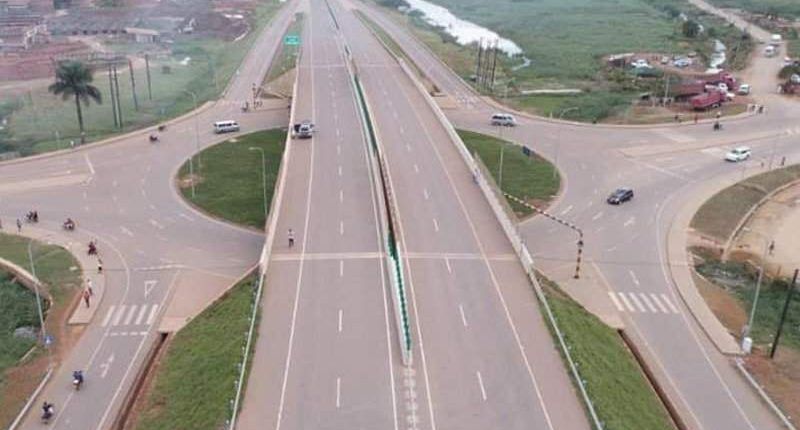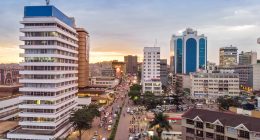Over the last month, there has been public outcry, especially on social media regarding the state of roads within the Kampala City and the Greater Kampala Metropolitan Area. Almost all roads have developed large potholes owing to the heavy rains in the wet season. But the bulk of the roads also seem to have gone beyond their design life and thus the vast structural failures on road pavements. According to the press statement released by Kampala Capital City Authority, Kampala City has a total road network of 2,100KM of which only 30% are paved while the rest (70%) are unpaved or earth roads. KCCA further noted that by end of December 2022, they had recorded an area of 8,500 square metres of potholes spread across the city’s five divisions.
Aging infrastructure particularly roads are not the preserve of only Kampala, Uganda. According to the New York City Infrastructure Report (2022) by the American Society of Civil Engineers (ASCE) New York has a vast network of over 240,000 lane-miles of roadways connecting communities and providing a critical economic function. However deferred maintenance has resulted in rough roads, congestion, and safety deficiencies. 45% of New York’s major highways are considered to be in poor or fair condition.
Relatedly, the World Economic Forum warned in the Global Risks Report (2019) that persistent underfunding of critical infrastructure globally is hampering economic progress, and exposing businesses and communities to significant risks. Furthermore, the existing physical and digital infrastructure are under stress from population growth and face challenges from cyberattacks, extreme weather and climate change.
However for countries like Uganda and particularly cities like Kampala, the resources are limited to undertake grand infrastructure projects to redesign, rehabilitate and reconstruct damaged roads and drainage systems. There is therefore need to attract private capital investment in building, operating and maintaining of public infrastructure like city roads and transport facilities. This can be done through Pubic Private Partnerships (PPPs) which are regarded as a method for procuring and delivering both public (new assets or upgrades of existing assets) and public services.
This has to be through long-term contracts between a public party like Kampala City Council Authority (KCCA) or Uganda National Roads Authority (UNRA) or Ministry of Works and Transport and a private party (which could be consortium of engineering firms, construction contractors and private investors), for the development and/or management of a public asset or service like city roads, bridges, toll roads etc., in which the private agent bears significant risk (design risk, construction risk, financing risk etc.) and management responsibility through the life of the PPP contract, and their payment or remuneration is significantly linked to performance, quality or use of the asset or service.
In the case of Kampala City, the authority may have the city roads divided up in lots either per division or based on mileage. It would also have to come up with quality and performance measures for the maintenance of the existing roads to be contracted out to private parties for long-term tenures of not less than 10 years. Long-term contracts are attractive to the private sector and also help to incentivize them for innovation to design, construct and manage maintenance in a more cost-effective way. Currently, because of the nature of the budget cycle for Uganda, agencies like Kampala City Council Authority (KCCA) are bound to struggle with management of public infrastructure owing to delays in quarterly budget releases and delays in procurement for works and services. PPPs in the form of long-term contracts that are performance oriented and transfer significant risks to the private sector could be helpful in this regard.
The next question is how would the private partner be remunerated under these long term road maintenance contracts/ PPP contracts? There are PPPs whose revenues are based on user payments (user-pays PPPs also known as concessions in many countries) for example the Entebbe Kampala Expressway where UNRA has contracted the operation and maintenance to Egis to provide high quality road management and operation services along the expressway. Egis is a leading global consulting, construction engineering and operating firm.
There are other PPPs whose revenues are based on public or budgetary payments where the government pays for the services under the PPP contract. These are also known as availability payments, and considering the fact that all the city roads in Kampala are not toll roads, availability payments are the best option for compensating the Private partner in such operation and maintenance contracts. The payments by KCCA to the private partner have to be based on the achievement of quality requirements under the PPP contract. Multi-Lateral Banks (like World Bank and African Development Bank) that usually support and finance such projects or PPP contracts note that it is good practice in all availability-payment PPPs for the government to carefully consider whether there are quality elements that should be incorporated into the payment mechanism. For the case of KCCA, this could be area of potholes on all roads, quality of drainage systems, the status of road pavements, etc.
These PPPs would thus be structured as 10 or 15-year contracts with availability payments between KCCA and the Project Company/ private partner. A 10-year contract to refurbish and maintain existing city roads (in lots) where the private partner’s revenue is a fixed amount subject to availability of the city road and or quality deductions based on a set of performance requirements or key performance indicators (KPIs) regarding the road pavement and drainage channels.
With this approach, the annual maintenance budgets and or quarterly cash releases by the Government of Uganda (GoU) would be used to make the quarterly or monthly availability payments to the private partner all through the tenure of the PPP/maintenance contract. The private partner would be interested in the risks associated to the funding for the PPP contract. Funding is typically sourced from taxes (in government-pays PPPs) and allocated through ministerial policy statements and annual budgets. If the private partners are to source for financing to undertake the road maintenance works under the PPPs, the lenders or financial institutions will require guarantees for the funding / periodic payments from the government. Then there will be a need to employ some de-risking approaches to make these PPPs bankable for the lenders and investors to provide the upfront finance required for the projects. This could be in form of “Guarantee funds” to provide security for government payment obligations under the PPP contract.
As noted by the World Economic Forum, given the fiscal pressures on governments, the private sector needs to be engaged more fully to close the investment gap. To improve the resilience of global infrastructure, we need new approaches to public-private partnerships, project finance, and risk management, and Kampala City roads could be a good place to start for Uganda.
Eng. Nicholas Agaba Rugaba is a PPP Practitioner, a Corporate Member of the Uganda Institution of Professional Engineers (UIPE), and member of Faculty at the LéO Africa Institute








